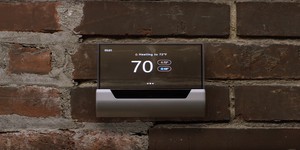
Chinese fabless semiconductor giant Rockchip has announced what it claims to be the world's lowest-power Wi-Fi chip, boasting the same power consumption as the battery-friendly Bluetooth 4.0 Low Energy standard with a significantly higher throughput.
Wi-Fi, the 802.11 family of wireless radio communication specifications, is a de facto standard for most computing devices from laptops to smartphones. It's fast, reasonably long-range, but has a tendency to drain battery life - a problem when you're trying to carve off a slice of the Internet of Things (IoT) pie. Bluetooth 4.0 LE is one answer, offering shorter range and lower-throughput communications, and has found considerable acceptance in the wearables market - but for longer-range or higher-throughput tasks Wi-Fi still rules the roost.
Rockchip's RKi6000, the company announced at Computex this week, brings the power saving of Bluetooth 4.0 LE to Wi-Fi. During use, the chip draws just 20mA - 85 per cent lower than traditional Wi-Fi chips and equal to that of Bluetooth LE. The secret lies in its on-chip processor and memory, which allows the radio to be used to transmit or receive data without having to wake up the rest of the system, combined with what the company describes as 'adaptive dynamic power control technology' to boost energy efficiency.
'In terms of a circuit’s power consumption and the user-friendly design of a device, there is currently a large gap between Wi-Fi SoC based on traditional radio-frequency architecture and the practical needs of new IoT devices,' claimed Gavin Que, director of Rockchip's IoT division, at the announcement. 'The Rockchip RKi6000 closes the gap for wearable and other IoT devices, which are being developed for consumer electronics, home appliances, and many more products using the Wi-Fi standard, greatly reducing the cost of development and implementation, and speeding up a smart device’s time to market.'
The chip, Rockchip claims, would allow an IoT sensor platform to run for 35 years on a single AAA battery - providing you can find a battery with a shelf-life that long, of course. The module is due to launch in the third quarter of this year, with Rockchip currently quiet on design wins for the part.
Wi-Fi, the 802.11 family of wireless radio communication specifications, is a de facto standard for most computing devices from laptops to smartphones. It's fast, reasonably long-range, but has a tendency to drain battery life - a problem when you're trying to carve off a slice of the Internet of Things (IoT) pie. Bluetooth 4.0 LE is one answer, offering shorter range and lower-throughput communications, and has found considerable acceptance in the wearables market - but for longer-range or higher-throughput tasks Wi-Fi still rules the roost.
Rockchip's RKi6000, the company announced at Computex this week, brings the power saving of Bluetooth 4.0 LE to Wi-Fi. During use, the chip draws just 20mA - 85 per cent lower than traditional Wi-Fi chips and equal to that of Bluetooth LE. The secret lies in its on-chip processor and memory, which allows the radio to be used to transmit or receive data without having to wake up the rest of the system, combined with what the company describes as 'adaptive dynamic power control technology' to boost energy efficiency.
'In terms of a circuit’s power consumption and the user-friendly design of a device, there is currently a large gap between Wi-Fi SoC based on traditional radio-frequency architecture and the practical needs of new IoT devices,' claimed Gavin Que, director of Rockchip's IoT division, at the announcement. 'The Rockchip RKi6000 closes the gap for wearable and other IoT devices, which are being developed for consumer electronics, home appliances, and many more products using the Wi-Fi standard, greatly reducing the cost of development and implementation, and speeding up a smart device’s time to market.'
The chip, Rockchip claims, would allow an IoT sensor platform to run for 35 years on a single AAA battery - providing you can find a battery with a shelf-life that long, of course. The module is due to launch in the third quarter of this year, with Rockchip currently quiet on design wins for the part.

MSI MPG Velox 100R Chassis Review
October 14 2021 | 15:04








Want to comment? Please log in.